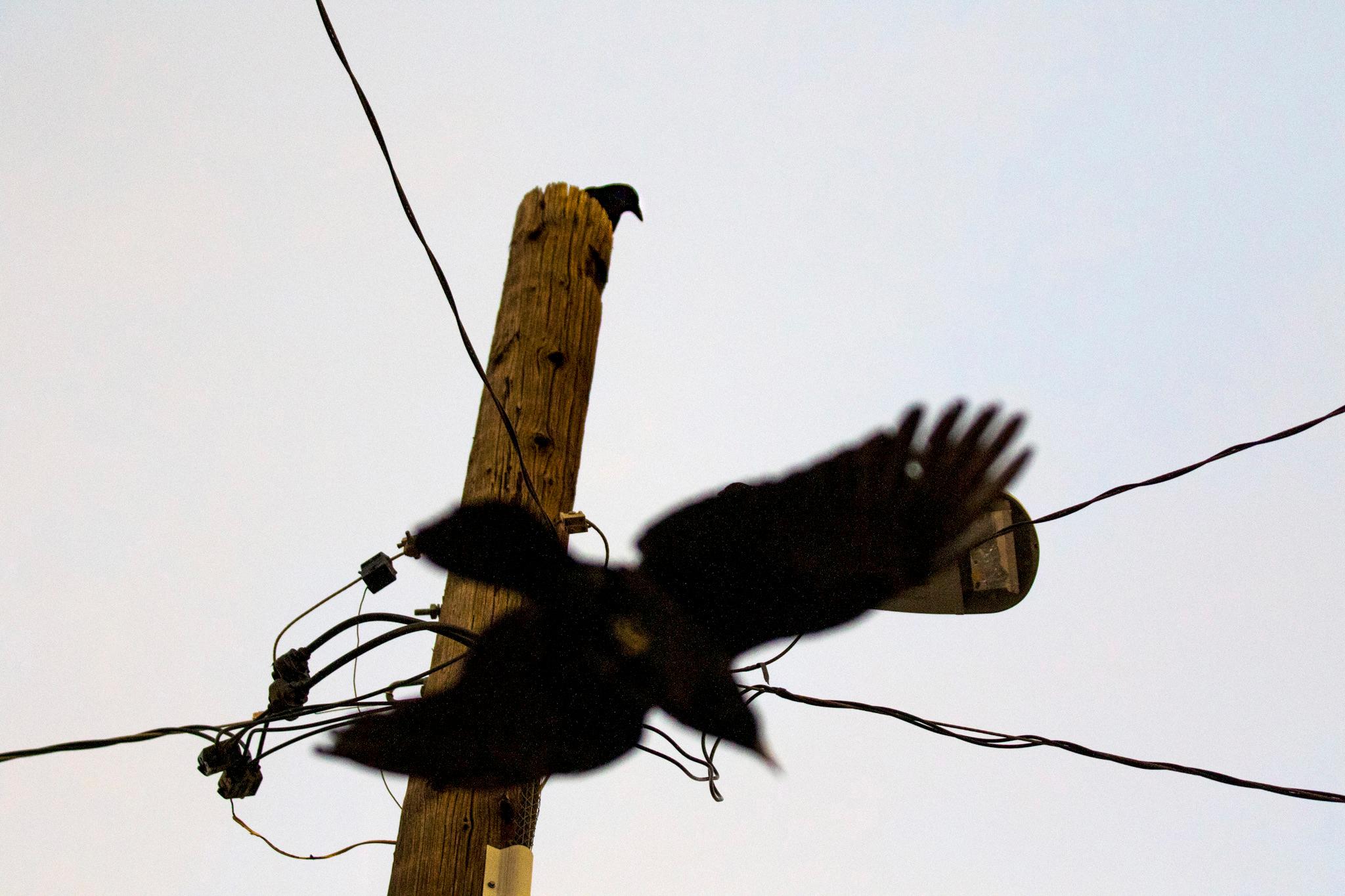A Colorado appellate judge who has been described as a strict textualist and originalist is President Donald Trump's pick to replace the late Antonin Scalia on the United States Supreme Court.
Neil Gorsuch lives in Boulder and serves on the 10th Circuit Court of Appeals. He has been nominated to a seat that by tradition should have been Barack Obama's to fill, but Senate Republicans blocked a vote on his nominee, Merrick Garland.
The open Supreme Court seat may have helped Trump prevail, as many conservative voters said it was one of the most important factors for them.
Trump made the stakes clear in announcing his choice.
"I have always felt that after the defense of our nation the most important decision a president of the United States can make is the appointment of a Supreme Court justice. Depending on their age, a justice can be active for 50 years, and his or her decisions can last a century or more and can often be permanent," Trump said in making the announcement.
Gorsuch is just 49 and if confirmed, would be likely to serve for decades. Trump said Gorsuch's qualities "define and I mean really closely define what we're looking for."
Gorsuch has not ruled directly on abortion, but Trump promised repeatedly during the campaign to nominate pro-life justices to the court. He drew his potential nominees from a list that was vetted by conservative legal scholars. Gorsuch is also the author of a book arguing against assisted suicide and euthanasia.
Gorsuch was confirmed to the appeals court by a unanimous voice vote in 2006, and his qualifications are not in doubt. However, he goes to the Senate amid a much more partisan environment. Some Democrats have pledged to filibuster his nomination in return for Republicans blocking their president's nominee.
Trump said he hopes that Democrats and Republicans can come together "for once" to confirm Gorsuch "for the good of our nation."
In accepting the nomination, Gorsuch called Scalia "a lion of the law." Gorsuch described the Constitution the "greatest charter of human liberty the world has ever known." He pledged to apply the law without consideration for his own political beliefs and preferences.
Gorsuch praised those who came before him, including Justice Anthony Kennedy, for whom he clerked. Kennedy often is the swing vote on a divided 5-4 court whose ideological make-up will not significantly change. FiveThirtyEight positioned Gorsuch to the right of Scalia and Samuel Alito, Scalia's ideological comrade on the court, but slightly to the left of Clarence Thomas.
"I respect the fact that in our legal order, it is for Congress and not the courts to write new laws. It is the role of judges to apply, not alter, the work of the people's representatives," he said. "A judge who likes every outcome he reaches is very likely a bad judge, stretching for results he prefers rather than those the law demands."
SCOTUSblog has a good overview of Gorsuch's legal views, which in many ways map closely with Scalia's. Gorsuch gives a lot of deference to religious freedom and sided with employers who did not want to include contraceptive coverage in their employees' insurance package. Unlike Scalia, he has questioned the long-standing Chevron doctrine, which holds that regulatory agencies should get deference in interpreting how to apply the law. He has said that leaves too much of the law to the executive branch. That has led to rulings that favor businesses over the government.
And like Scalia, his skepticism around government has sometimes led to rulings that favor criminal defendants, despite an overall conservative bent. However, on death penalty cases, he has generally decided in favor of the government. As reported by Buzzfeed News, in one case he joined two other justices in describing a 43-minute long botched execution as an "innocent misadventure," rather than cruel and unusual punishment.
Gorsuch is described by those who know him as down-to-earth and charismatic, without the rough edges and abrasiveness that characterized Scalia.
Colorado Attorney General Cynthia Coffman, a Republican, praised the nomination.
"Judge Neil Gorsuch is an extremely qualified and well-respected U.S. Supreme Court nominee," she said in a statement. "He not only has a brilliant legal mind, but has both the experience and the temperament needed to serve on our nation’s highest court. Judge Gorsuch’s deep understanding and reverence of the law will serve him and the American people well."
Republican Sen. Cory Gardner described the nominee as "one of our country's brightest legal minds."
"A former Supreme Court clerk for Justices Byron White and Anthony Kennedy, Judge Gorsuch has learned from some of the most exceptional, disciplined and faithful interpreters of the law," he said in a statement. "He is an ardent defender of the Constitution and he has the appropriate temperament to serve on the nation’s highest court. Judge Gorsuch also adds to the court's Western perspective, with his understanding of uniquely Western issues like water and public lands issues. I’m enthusiastic about the native Coloradan’s nomination and will work to ensure that his confirmation process is fair, thorough, and expedient."
Sen. Michael Bennet, a Democrat, was much more circumspect. He issued a statement attributed to a spokeswoman, not to himself.
"As fellow Coloradan, Michael congratulates Judge Gorsuch and his family," spokeswoman Laurie Cipriano said. "He takes seriously the Senate's responsibility to advise and consent on Supreme Court nominations. He intends to review Judge Gorsuch's record carefully in the coming weeks."
Bennet's caution reflects the difficult position of Democrats. They could use the filibuster on Gorsuch, but doing so might lead to the elimination of the filibuster entirely.
Some Democrats have said it would be better to have the big fight over a justice who would shift the balance of the court, such as whoever might replace liberal giant Justice Ruth Bader Ginsburg. At the same time, grassroots activists are urging elected Democrats to hold the line at every opportunity against Trump's agenda.
Liberal groups said Gorsuch would not defend the rights of women and workers and would not uphold environmental protections.
"Neil Gorsuch is just the latest in a series of horrible choices by Donald Trump," ProgressNow Colorado Executive Director Ian Silverii said in a statement. "Gorsuch's fringe views on health care and contraception make him an enemy of Colorado women. On the Supreme Court, Gorsuch would be a vote to roll back women's rights, environmental protections and hard-won protections against discrimination in the workplace. Gorsuch has even been endorsed by the founder of the National Organization for Marriage, an anti-LGBT extremist group. Gorsuch may hail from Colorado, but his record stands in opposition to Colorado values."
Daniel Ramos, executive director of the LGBT advocacy group One Colorado, said Gorsuch's rulings on religious freedom could open the door to more discrimination.
“Religious freedom is a core American value that we all cherish, and it is already protected by the Constitution," he said. "Attempts to give a license to discriminate through religious exemptions are contrary to the notion that we should treat others as we wish to be treated and scores of faith leaders have spoken out against such policies -- including last week here in Colorado.
"A Supreme Court that would rule in support of religious exemptions would certainly open LGBTQ Americans up to discrimination and open up a can of worms that could allow individuals to ignore child welfare, domestic violence, or other laws that someone could contend is contrary to their religion."













